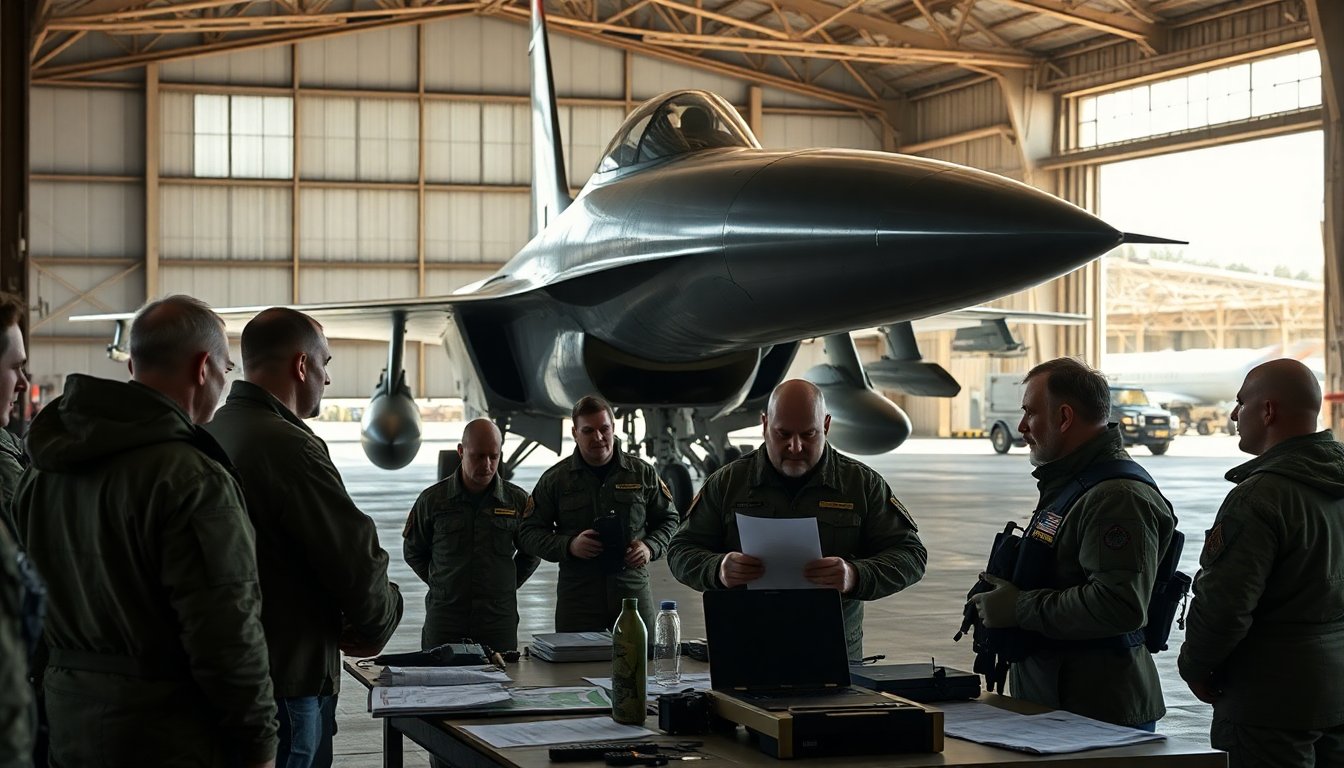Table of Contents
On a tense Tuesday, Russian officials announced the discovery of an alleged scheme attributed to Ukraine’s Main Intelligence Directorate, known as HUR. This operation reportedly involved plans to hijack a Russian MiG-31 fighter jet, allegedly with the assistance of British agents.
The Federal Security Service (FSB) of Russia issued a statement claiming that Ukrainian military intelligence attempted to entice Russian pilots into participating in this operation by offering a reward of three million U.S. dollars for the successful theft of the aircraft.
The alleged hijacking plot
The FSB claims that the goal of this operation was to equip a stolen MiG-31 with a Kinzhal missile and target the NATO airbase in Constanța, Romania. They assert that the aircraft could be intercepted by air defense systems prior to reaching its destination.
Details from an unidentified informant
In a dramatic development, the FSB released a video featuring an individual wearing a flight helmet to conceal his identity. This anonymous figure, speaking through a digitally altered voice, stated he was contacted in the fall of via Telegram by someone using the alias “Sergey Lugovsky.” The alleged journalist from Bellingcat reportedly attempted to pay him for information regarding military affairs.
The individual featured in the video expressed doubts about Lugovsky’s true intentions, suggesting that the offer might mask a more sinister objective tied to intelligence operations. “I believe Sergey’s real goal in contacting me was to compromise me and later leverage that for the benefit of intelligence services,” he stated.
Alleged recruitment tactics
According to the narrative presented by the FSB, the recruitment of Russian pilots involved a purported journalistic organization—Bellingcat—as a facade. A source from the agency indicated that they had previously linked journalist Christo Grozev to another unsuccessful hijacking attempt involving a different aircraft.
An informant has alleged that during discussions with Lugovsky, there were insinuations of a reward for military-related intelligence. This reward was said to involve direct payments to his bank account. However, the informant decided to cut off communication upon recognizing the serious implications of such an offer.
Offers of financial incentives
Following the termination of contact, the informant received an anonymous email that proposed a remarkable one million dollars for the hijacking of an aircraft. If the targeted plane was equipped with a Kinzhal missile, the proposed payment would reportedly increase to three million dollars. The email was associated with an individual named Alexander, who communicated through various messaging platforms.
In a startling development, Alexander allegedly facilitated a meeting between an informant and a Ukrainian Air Force pilot. The pilot reportedly provided remote training on operating the MiG-31, assuring the informant that flying the aircraft was less complex than it might appear.
The plan’s sinister undertones
The informant elaborated that the scheme involved neutralizing a Russian flight commander mid-air. He claimed the instructions included tampering with the commander’s oxygen mask using a toxic substance or breaking the cockpit’s glass partition to incapacitate him.
As the plot unfolds, the informant disclosed that the hijacking was intended to occur over the Black Sea. Alexander suggested a flight path that would traverse Romanian airspace, specifically over the city of Constanța. Interestingly, he also promised to create a fabricated news report to portray a plane crash as a cover for their actions.
Russian military response
Following allegations of provocation by Ukraine, the Federal Security Service (FSB) reported that Russian forces launched missile strikes on the Main Center for Electronic Intelligence in Kyiv and the Starokostiantyniv airfield, which reportedly hosts F-16 fighter jets.
Reactions from the accused
In response to these accusations, journalist Christo Grozev expressed skepticism, labeling the claims as absurd. He highlighted inconsistencies within the FSB’s narrative and questioned the credibility of a fabricated journalist from a disreputable organization allegedly used to attract Russian pilots.
Grozev further criticized the evidence presented, noting the unnatural quality of the video and the implausibility of the scenario described. He questioned the rationale behind Ukrainian intelligence employing such overt tactics, indicating that the allegations lack credible substantiation.
Ukrainian authorities have not commented on the FSB’s claims, contributing to an atmosphere of uncertainty regarding the situation.


